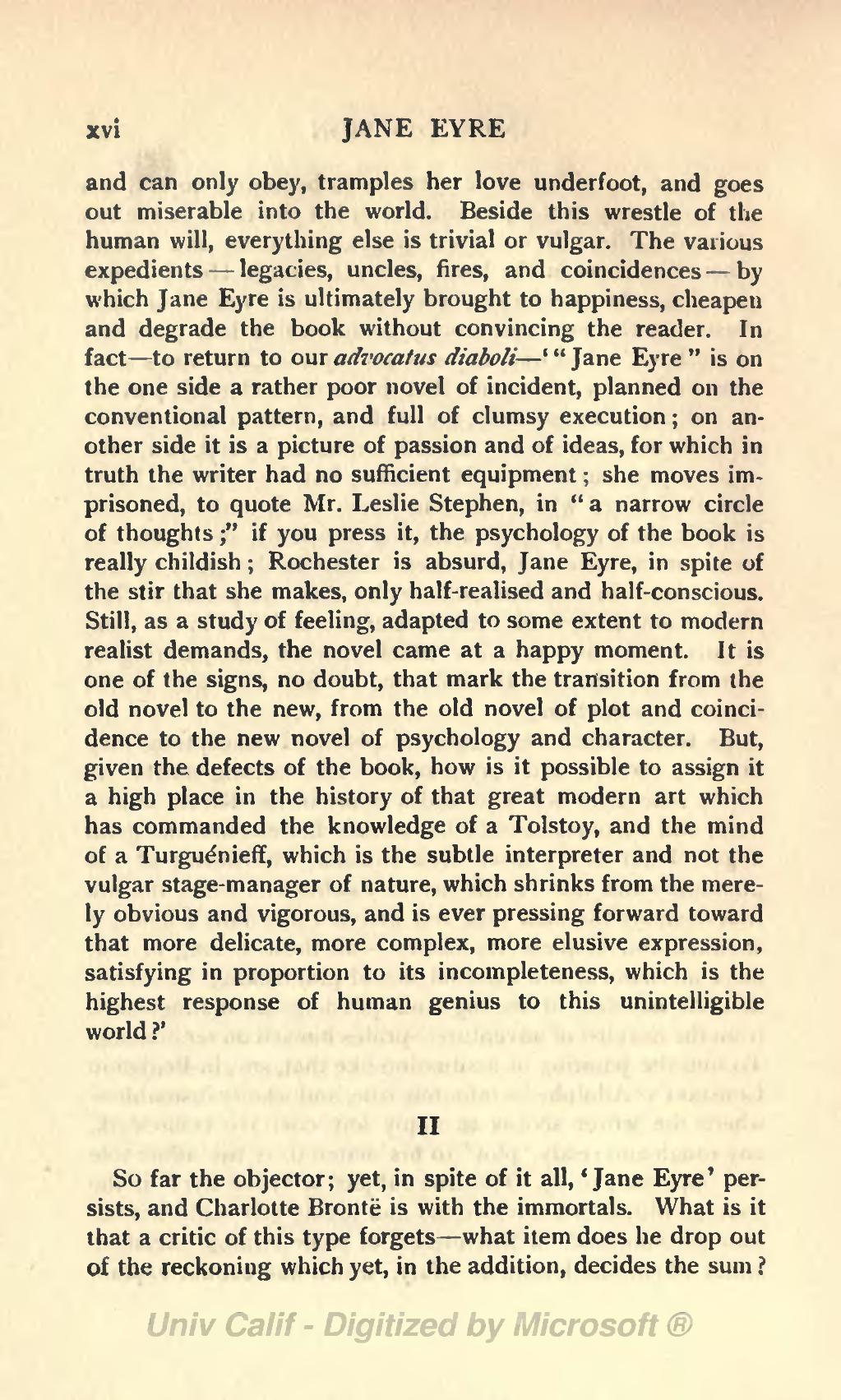and can only obey, tramples her love underfoot, and goes out miserable into the world. Beside this wrestle of the human will, everything else is trivial or vulgar. The various expedients legacies, uncles, fires, and coincidences by which Jane Eyre is ultimately brought to happiness, cheapen and degrade the book without convincing the reader. In fact to return to our advocatus diaboli - '"Jane Eyre" is on the one side a rather poor novel of incident, planned on the conventional pattern, and full of clumsy execution ; on an- other side it is a picture of passion and of ideas, for which in truth the writer had no sufficient equipment ; she moves im- prisoned, to quote Mr. Leslie Stephen, in " a narrow circle of thoughts ;" if you press it, the psychology of the book is really childish ; Rochester is absurd, Jane Eyre, in spite of the stir that she makes, only half-realised and half-conscious. Still, as a study of feeling, adapted to some extent to modern realist demands, the novel came at a happy moment. It is one of the signs, no doubt, that mark the transition from the old novel to the new, from the old novel of plot and coinci- dence to the new novel of psychology and character. But, given the defects of the book, how is it possible to assign it a high place in the history of that great modern art which has commanded the knowledge of a Tolstoy, and the mind of a Turguénieff, which is the subtle interpreter and not the vulgar stage-manager of nature, which shrinks from the mere- ly obvious and vigorous, and is ever pressing forward toward that more delicate, more complex, more elusive expression, satisfying in proportion to its incompleteness, which is the highest response of human genius to this unintelligible world?'
II
So far the objector; yet, in spite of it all, 'Jane Eyre' per- sists, and Charlotte Bronte is with the immortals. What is it that a critic of this type forgets what item does he drop out of the reckoning which yet, in the addition, decides the sum ?
